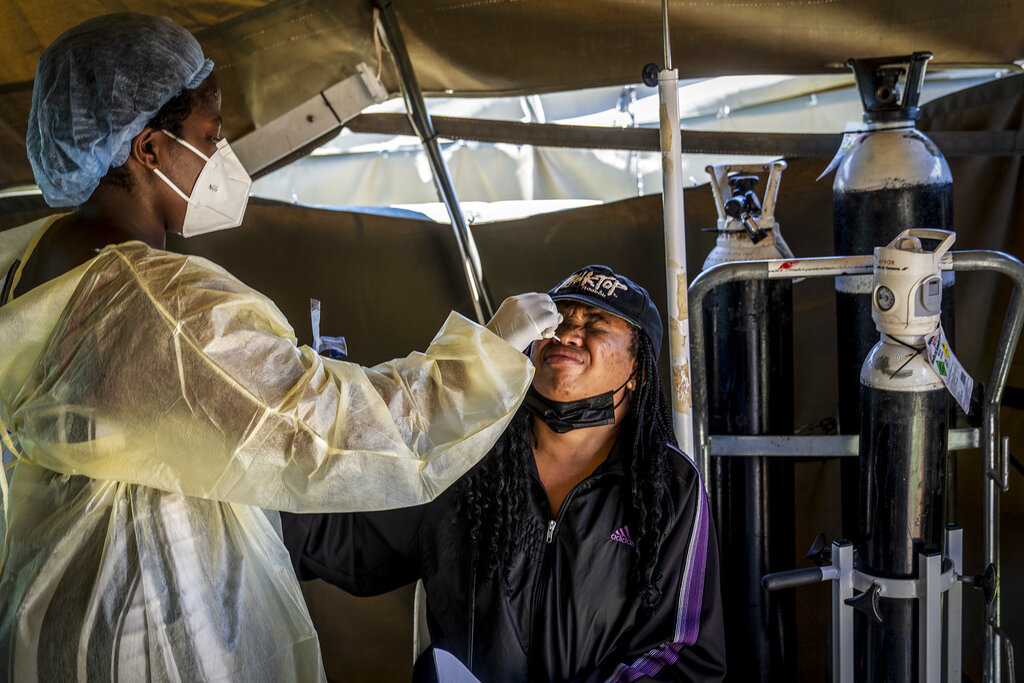ADF STAFF
When Dr. Angelique Coetzee first noticed what turned out to be a new variant of COVID-19 in South Africa last year, it was a set of unfamiliar symptoms that piqued her curiosity.
Coetzee, a private practitioner and former chair of the South African Medical Association, saw 30 patients over a 10-day period in November 2021, including a number of healthy young men who came to her clinic “feeling so tired.”
“The most predominant clinical complaint is severe fatigue for one or two days,” she told Reuters news service. “With them, the headache and the body aches and pain.”
They all tested positive with the omicron variant.
Coetzee said the patients also reported a scratchy throat and dry cough. Only a few had a slightly high temperature.
Symptoms associated with omicron have replaced delta variant symptoms and the original strain of COVID-19.
That change in symptoms tipped off Coetzee, who hadn’t seen any signs of the disease for eight to 10 weeks when seven patients appeared in her office on November 18 with signs of a viral infection.
“It started with a male patient around the age of 30, 31 who very seldom visited,” she told the BBC. “He said he was extremely tired for several days, had body aches and pain with a bit of a headache, not really a sore throat, more of a scratchy type of description.
“No loss of smell or taste.”
She tested the man and his whole family — all positive.
“Every one of them had very, very mild symptoms,” she said. “For the rest of the day I saw more patients with the same sort of symptoms that all tested positive.”
She alerted the ministry of health, and days later the omicron variant was announced during a virtual news conference called by the Health Department of South Africa.
The World Health Organization (WHO) said South Africa had reported 77 of the 87 confirmed cases of omicron on November 25, 2021.
“What we are seeing clinically in South Africa — and remember I’m at the epicenter of this where I’m practicing — is extremely mild for us,” Coetzee said on November 28. “We haven’t admitted anyone. I’ve spoken to other colleagues of mine, and they give the same picture.”
She said none of her patients displayed the same need for supplemental oxygen, elevated pulse rate or loss of taste and smell that doctors saw with patients infected with the delta variant.
“It’s totally different from the delta,” Coetzee told Canada’s Global News website in December 2021. “It’s very much like a cold or flu type of symptoms.
“They don’t have a severe cough, and they don’t have a running or blocked nose as you would see with an upper respiratory tract infection.”
When it appeared, the omicron BA.2 subvariant showed researchers clear signs that it was more infectious than its predecessors.
Now, omicron BA.5 is dominant across the globe.
More than half of worldwide cases are attributed to the BA.5 subvariant, the WHO said in July 2022.
Experts say BA.5 symptoms appear to be associated more with upper respiratory issues, because the virus lingers in nasal passages and other parts of the respiratory system above the lungs.
The five symptoms that present in the early stages of omicron infections are fatigue, headache, sore throat, fever, and gastrointestinal symptoms such as nausea, vomiting and diarrhea.
Dr. Sikhulile Moyo, the laboratory director in Botswana who led the team that identified the omicron variant, said omicron has spread so quickly around the world because of the way it transmits more easily from one respiratory system to another.
“BA.4 and BA.5 are masters in terms of evading the fury of the immune system,” he told National Public Radio (NPR). “The subvariants were able to elicit an immune response, but magnitudes lower than what we saw before.”
Since his discovery, Moyo not only caught COVID-19 and developed symptoms of long COVID, but he also has seen worrying signs that natural immunity against the dominant variant is waning.
“How far can we hold on with the current levels of immunity?” he mused to NPR. “It may get a little bit rough. Many people are spending days at home and [developing] long COVID afterward.”

